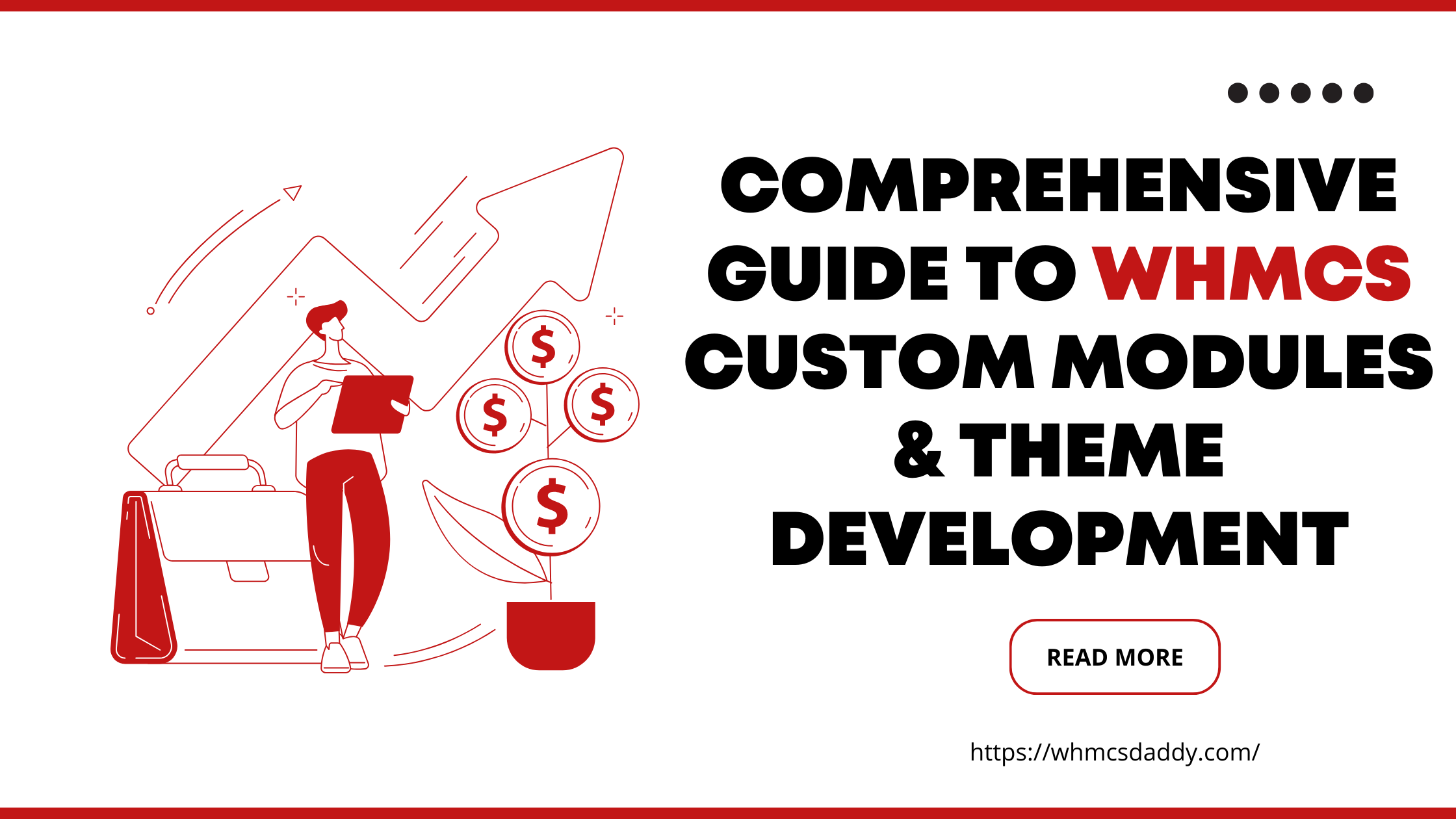Introduction To WHMCS Custom Modules & Theme Development
WHMCS is a strong platform that stands tall. It smoothly combines client management, support, and invoicing, making it essential for companies in the hosting sector. Although WHMCS comes with a lot of capability out of the box, its real value is in the custom modules and themes that allow for customisation. In order to provide businesses with specialized solutions, this blog explores the complexities of WHMCS custom development, including module and theme creation.
Exploring Customized WHMCS Modules
As additions to your WHMCS platform, custom modules are made to automate processes, integrate with external services, or add specific features. A closer look at the WHMCS modules is provided below:
Types of Modules:
Provisioning Modules: For efficient resource management and service provisioning, effortlessly integrate with payment gateways, domain registrars, and other third-party services.
Add-on Modules: Enhance WHMCS with custom features like marketing automation platform integration, sophisticated customer management tools, and custom reports.
Registrar Modules: Automate domain registration, renewal, and management procedures by establishing a smooth connection with domain registrars.
Gateway Modules: To provide your consumers more payment options and to expedite the payment processing process, integrate with a variety of payment gateways.
Mail Provider Modules: Integrate with your favorite email providers to personalize email delivery features.
Notification Providers: Connect WHMCS with notification systems to give out automatic alerts via email or SMS when important events occur.
Benefits of Custom Modules:
Improved Functionality: WHMCS’s capabilities can be expanded to match your specific company requirements, encouraging automation and optimizing workflows.
Simplified Integrations: Reduce time and error by integrating with third-party services to eliminate manual operations.
Competitive advantage: To differentiate yourself from the competition and draw in new clients while keeping hold of current ones, provide distinctive services and features.
Enhanced Efficiency: Free up staff resources for important efforts by automating repetitive operations and streamlining customer interactions.
Enhanced Scalability: Tailor your WHMCS platform to easily accommodate future expansion and shifting business needs.
Exploring WHMCS Theme Development
Importance of WHMCS Themes
WHMCS themes define the user interface and experience (UI/UX) of the client area, making them crucial for branding and usability. Custom themes allow businesses to align WHMCS with their brand identity and improve user engagement.
Key Elements of WHMCS Themes
- Template Files: HTML templates defining layout and structure.
- CSS Stylesheets: Designing visual elements and responsiveness.
- JavaScript: Enhancing functionality and interactivity.
- Language Files: Customizing text and localization.
- Responsive Design: Ensuring compatibility across devices.
Customization Options
- Branding: Incorporating company logos, colors, and fonts.
- User Interface: Simplifying navigation and enhancing user experience.
- Functionality: Adding custom widgets and features.
Development Process
- Design Mockups: Creating wireframes and UI prototypes.
- HTML/CSS Implementation: Converting designs into WHMCS-compatible templates.
- JavaScript Integration: Adding interactive elements and dynamic content.
- Testing and Optimization: Ensuring cross-browser compatibility and performance.
- Deployment and Maintenance: Uploading to WHMCS and monitoring for updates.
Challenges and Considerations
Security
- Data Protection: Handling sensitive client information securely.
- Code Vulnerabilities: Protecting against SQL injection and other attacks.
Compatibility
- WHMCS Updates: Ensuring modules and themes remain compatible with new versions.
- Third-party Integration: Managing dependencies on external services.
Performance
- Optimization: Enhancing speed and responsiveness for optimal user experience.
Conclusion
Custom modules and themes elevate WHMCS from a functional tool to a strategic asset for hosting businesses. By harnessing the power of custom development, organizations can streamline operations, enhance client satisfaction, and differentiate themselves in a competitive market. Whether integrating new payment gateways, automating server provisioning, or designing a user-friendly interface, WHMCS custom development empowers businesses to innovate and thrive.

